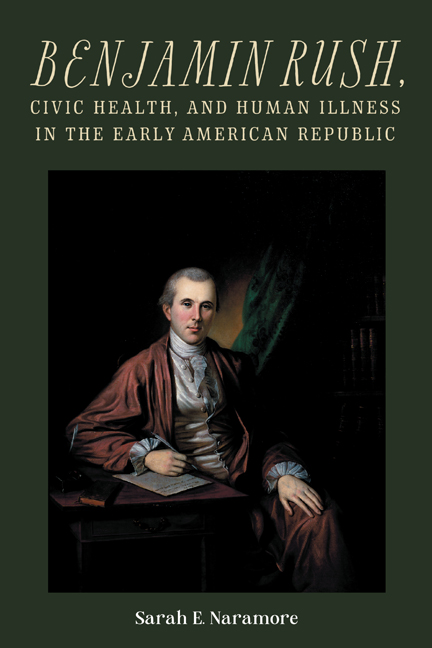Introduction: “Truth Is a Unit”
Published online by Cambridge University Press: 10 January 2024
Summary
In March 1787, Benjamin Rush sat in Benjamin Franklin's Philadelphia home discussing the nature of public punishments. The two Benjamins were not alone. Rush spoke to the newly formed Society for Promoting Political Inquiries of which he—as well as Franklin—was a founding member. The organization itself was dedicated not to the development of partisan politics, but to the study of politics as a science. Its members believed government could be understood, dismantled, and rebuilt with greater clarity. Just as the laws of motion or the nature of electricity yielded to inquiry, so too, they hoped, would the laws of human society and workings of the human mind. While a short walk away colleagues worked to construct the United States Constitution, these Philadelphians mused upon the basic framework of good governance at all levels. The group met most months between February 1787 and May 1789 at Franklin's home, with different members presenting each time. While short-lived, the society and its members represented the strong “improving” and “enlightened” impulse in post-Revolutionary American life and the extent to which “scientific” was an idealized adjective. After the war for independence, and in the midst of the development of a new constitution, members looked to science and scientific methods to guide them in developing national institutions and understanding political trends. Benjamin Rush took those lessons to heart in a variety of projects pre- and postdating his lecture in Franklin's home.
The Society counted among its members the leaders of Philadelphia's social, political, and scientific elite. Thomas Paine drafted their governing documents; local politicians George Clymer and William Bingham served as the first vice presidents. Franklin, at 81 the elder statesman of Philadelphia's intellectual society, acted as president. As a physician, Rush was joined by other men of science, including astronomer and naturalist David Rittenhouse and his medical colleague Adam Kuhn.1 Rush's oration on public punishments was one of the most influential and widely read documents to come out of the group and demonstrates his use of medical knowledge to craft social policy. As
- Type
- Chapter
- Information
- Publisher: Boydell & BrewerPrint publication year: 2023

